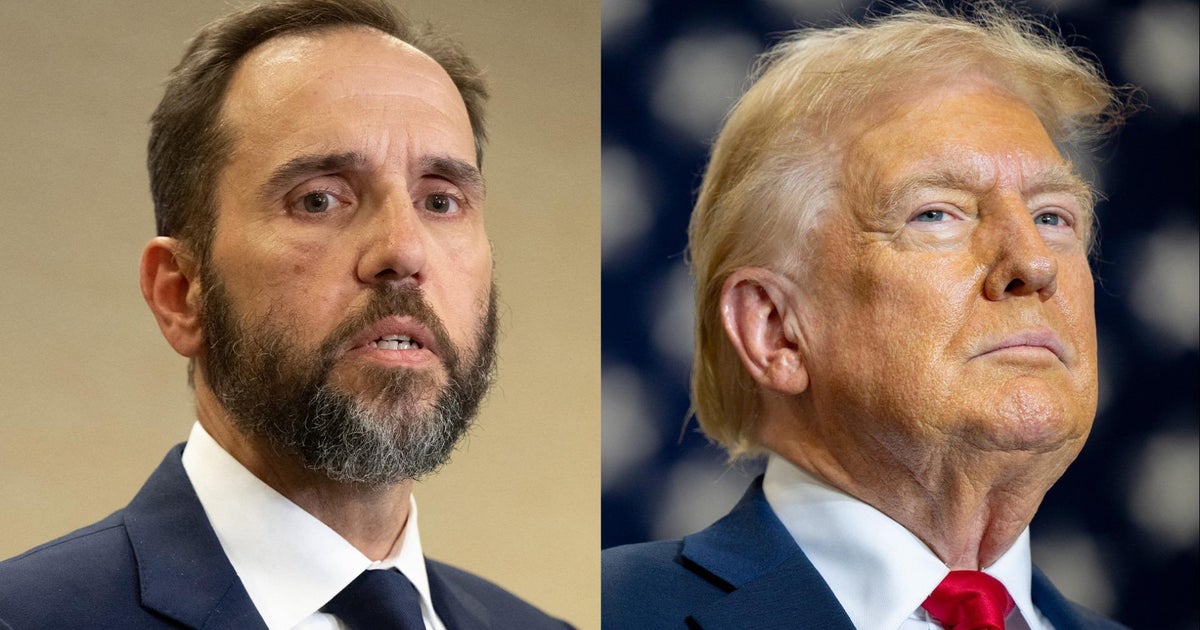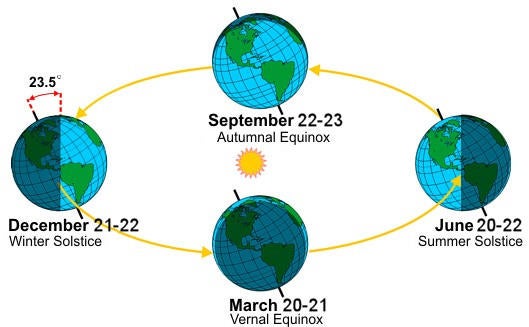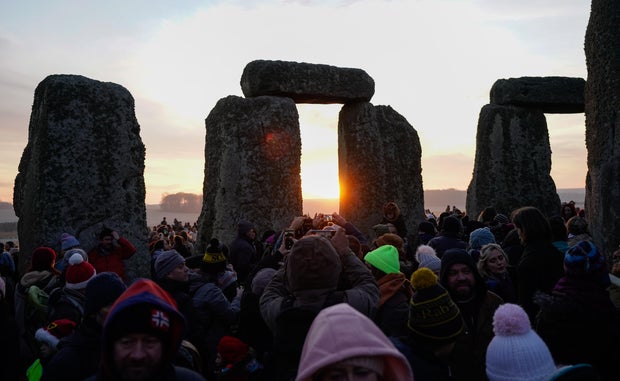CBS News
Supreme Court won’t step into dispute over Jack Smith’s efforts to get Trump’s X information

Washington — The Supreme Court said Monday it will not step into a dispute involving special counsel Jack Smith’s efforts to obtain records from former President Donald Trump’s account on Twitter, now known as X, and keep the social media company from telling him about the demand for the information.
In turning away the appeal from X, the court leaves intact a lower court decision that upheld a nondisclosure order that said Smith’s request for Trump’s social media records must be kept secret for six months.
The justices have sidestepped another high-profile legal battle arising from the special counsel’s prosecution of the former president for allegedly attempting to subvert the peaceful transfer of power after the 2020 election.
The court’s conservative majority ruled in July that Trump is entitled to some immunity from criminal charges stemming from official acts taken while he was president. Proceedings in the case are continuing before a federal district court in Washington, which is now weighing whether Smith’s slimmed-down allegations in the case against Trump comply with the Supreme Court’s opinion.
X had asked the Supreme Court to consider whether social media companies can be forced to give the government a user’s communications while they’re prohibited from notifying the user about it. In the case of Trump, the company said the nondisclosure order deprived him of the opportunity to assert executive privilege over the material before it was provided to the special counsel. But X said other users such as journalists, doctors or lawyers may want to invoke their own privileges and would not have the chance to.
Trump’s X account
The court fight between Smith and X, owned by billionaire Elon Musk, dates back to January 2023, when the federal government obtained a court-authorized warrant for information associated with Trump’s account, @realDonaldTrump, as part of its election interference probe.
U.S. District Judge Beryl Howell ordered the company, then known as Twitter, to turn over the requested data to Smith. She also prohibited Twitter from disclosing the warrant to anyone for 180 days after determining that the government had grounds to believe that notifying Trump would put its investigation at risk.
Twitter withheld the records while it challenged the nondisclosure order, which the company claimed violated its First Amendment right to communicate with Trump. But Howell ultimately concluded that the order was valid and imposed a $350,000 civil contempt sanction on the company because of its failure to hand over the records on time.
Twitter eventually turned over to Smith 32 direct messages tied to Trump’s account, which prosecutors said was a “miniscule proportion” of the material they sought. The nature of the messages is unknown, including whether they were drafts, sent from Trump’s account or received by the former president. The social media company said it also produced to Smith numerous other data sets.
Musk’s company appealed to the U.S. Court of Appeals for the District of Columbia Circuit, which in July 2023 found the nondisclosure order comported with the First Amendment. While the appeal was pending, the district court allowed Twitter to notify Trump of the warrant.
The dispute between Twitter and Smith played out behind closed doors for several months until the decision by the three-judge panel of judges on the D.C. Circuit was unsealed in August 2023.
Trump had not yet been indicted when the social media company and federal prosecutors went to battle over his records. He was hit with four charges in early August 2023 in what the special counsel claimed was a plot to reverse the outcome of the 2020 presidential election and hold onto power.
But the prosecution was put on hold for months while Trump appealed a district court’s decision finding that he is not entitled to presidential immunity from prosecution. The Supreme Court’s conservative majority ultimately found that the former president cannot be charged for some official acts that took place while he was in the White House, but said unofficial acts are not covered by immunity.
In the wake of the high court’s ruling, a federal grand jury returned a new indictment against Trump that laid out a more narrow set of allegations against him. The federal district court is now holding more proceedings to determine whether Trump’s conduct in the course of the alleged crimes — namely his communications with Vice President Mike Pence — is not subject to immunity, as laid out by the Supreme Court.
CBS News
Social Security Fairness Act passes U.S. Senate

Legislation to expand Social Security benefits to millions of Americans passed the U.S. Senate early Saturday and is now headed to the desk of President Joe Biden, who is expected to sign the measure into law.
Senators voted 76-20 for the Social Security Fairness Act, which would eliminate two federal policies that prevent nearly 3 million people, including police officers, firefighters, postal workers, teachers and others with a public pension, from collecting their full Social Security benefits. The legislation has been decades in the making, as the Senate held its first hearings into the policies in 2003.
“The Senate finally corrects a 50-year mistake,” proclaimed Senate Majority Leader Chuck Schumer, a Democrat from New York, after senators approved the legislation at 12:15 a.m. Saturday.
The bill’s passage is “a monumental victory for millions of public service workers who have been denied the full benefits they’ve rightfully earned,” said Shannon Benton, executive director for the Senior Citizens League, which advocates for retirees and which has long pushed for the expansion of Social Security benefits. “This legislation finally restores fairness to the system and ensures the hard work of teachers, first responders and countless public employees is truly recognized.”
The vote came down to the wire, as the Senate looked to wrap up its current session. Senators rejected four amendments and a budgetary point of order late Friday night that would have derailed the measure, given the small window of time left to pass it.
Vice President-elect JD Vance of Ohio was among the 24 Republican senators to join 49 Democrats to advance the measure in an initial procedural vote that took place Wednesday.
“Social Security is a bedrock of our middle class. You pay into it for 40 quarters, you earned it, it should be there when you retire,” Ohio Senator Sherrod Brown, a Democrat who lost his seat in the November election, told the chamber ahead of Wednesday’s vote. “All these workers are asking for is for what they earned.”
What is the Social Security Fairness Act?
The Social Security Fairness Act would repeal two federal policies — the Windfall Elimination Provision (WEP) and the Government Pension Offset (GPO) — that reduce Social Security payments to nearly 3 million retirees.
That includes those who also collect pensions from state and federal jobs that aren’t covered by Social Security, including teachers, police officers and U.S. postal workers. The bill would also end a second provision that reduces Social Security benefits for those workers’ surviving spouses and family members. The WEP impacts about 2 million Social Security beneficiaries and the GPO nearly 800,000 retirees.
The measure, which passed the House in November, had 62 cosponsors when it was introduced in the Senate last year. Yet the bill’s bipartisan support eroded in recent days, with some Republican lawmakers voicing doubts due to its cost. According to the Congressional Budget Office, the proposed legislation would add a projected $195 billion to federal deficits over a decade.
Without Senate approval, the bill’s fate would have ended with the current session of Congress and would have needed to be re-introduced in the next Congress.
CBS News
12/20: CBS Evening News – CBS News

Watch CBS News
Be the first to know
Get browser notifications for breaking news, live events, and exclusive reporting.
CBS News
Saturday is the winter solstice and 2024’s shortest day. Here’s what to know about the official start of winter.

The 2024 winter solstice, the shortest day of the year, happens on Saturday, Dec. 21, in the Northern Hemisphere. The celestial event signifies the first day of winter, astronomically.
What is the winter solstice?
The winter solstice is the day each year that has the shortest period of daylight between sunrise and sunset, and therefore the longest night. It happens when the sun is directly above the Tropic of Capricorn, a line of latitude that circles the globe south of the equator, the National Weather Service explains.
The farther north you are, the shorter the day will be, and in the Arctic Circle, the sun won’t rise at all.
How is the day of the winter solstice determined?
The winter solstice occurs because of the Earth’s tilt as it rotates around the sun.
When the Northern Hemisphere tilts away from the sun, the nights last longer. The longest night happens on the solstice because the hemisphere is in its furthest position from the sun. That occurs each year on Dec. 21 or 22.
This year, it falls on Dec. 21 at 4:21 a.m ET, to be precise.
On the summer solstice, when the northern tilt is closest to the sun, we have the longest day, usually June 20 or 21.
National Weather Service
The solstices are not always exactly on the 21st every year because the earth’s rotation around the sun is 365.25 days, instead of 365 even.
Will days start getting longer after the winter solstice?
Yes. Each day after the solstice, we get one minute more of sunlight. It doesn’t sound like much, but after just two months, or around 60 days, we’ll be seeing about an hour more of sunlight.
When will winter officially be over in 2025?
The meteorological winter ends on March 20, 2025. Then, spring will last until June 20, when the summer solstice arrives.
How is the winter solstice celebrated around the world?
Nations and cultures around the world have celebrated the solstice since ancient times with varying rituals and traditions. The influence of those solstice traditions can still be seen in our celebrations of holidays like Christmas and Hanukkah, Britannica notes.
The ancient Roman Saturnalia festival celebrated the end of the planting season and has close ties with modern-day Christmas. It honored Saturn, the god of harvest and farming. The multiple-day affair had lots of food, games and celebrations. Presents were given to children and the poor, and slaves were allowed to stop working.
Gatherings are held every year at Stonehenge, a monumental circle of massive stones in England that dates back about 5,000 years. The origins of Stonehenge are shrouded in mystery, but it was built to align with the sun on solstice days.
Andrew Matthews/PA Images via Getty Images
The Hopi, a Native American tribe in the northern Arizona area, celebrate the winter solstice with dancing, purification and sometimes gift-giving. A sacred ritual known as the Soyal Ceremony marks the annual milestone.
In Peru, people honor the return of the sun god on the winter solstice. The ancient tradition would be to hold sacrificial ceremonies, but today, people hold mock sacrifices to celebrate. Because Peru is in the Southern Hemisphere, their winter solstice happens in June, when the Northern Hemisphere is marking its summer solstice.
Scandinavia celebrates St. Lucia’s Day, a festival of lights.
The “arrival of winter,” or Dong Zhi, is a Chinese festival where family gathers to celebrate the year so far. Traditional foods include tang yuan, sweet rice balls with a black sesame filling. It’s believed to have its origins in post-harvest celebrations.
Researchers stationed in in Antarctica even have their own traditions, which may include an icy plunge into the polar waters. They celebrate “midwinter” with festive meals, movies and sometimes homemade gifts.



